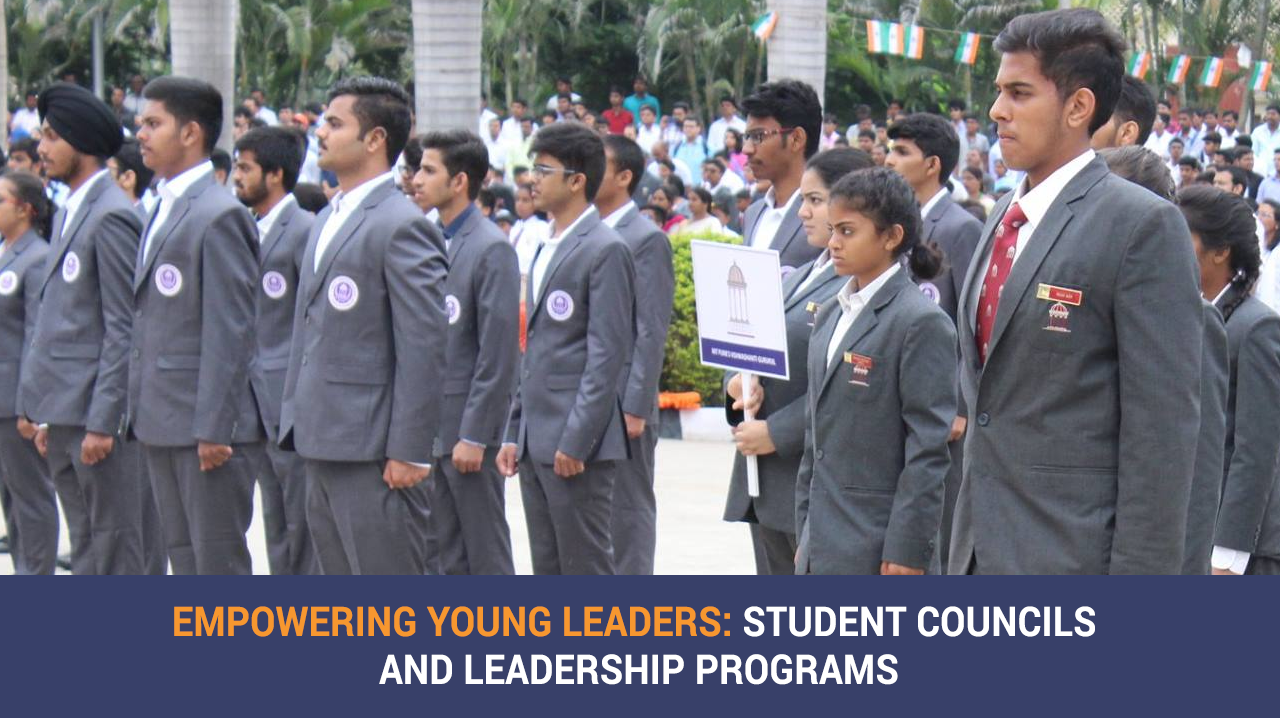The Role of Student Councils and Leadership Programs in Nurturing Young Leadership

In the dynamic landscape of education, fostering leadership skills among understudies is paramount for their personal development and future achievement. Student committees and leadership programs play a pivotal job in shaping the up and coming generation of leaders by providing valuable open doors for understudies to foster essential skills, collaborate with friends, and make a positive impact on their school networks. Let’s dive into the significance of student committees and leadership programs in empowering youthful leaders.
- Fostering Leadership Skills:
Direction and Critical Thinking:
Student boards open participants to real-world direction and critical thinking scenarios. From organizing occasions to addressing concerns raised by individual understudies, these encounters enhance critical reasoning and thinking abilities.
Communication and Public Speaking:
Leadership programs often incorporate public speaking open doors and compelling communication training. These skills are invaluable for communicating ideas, motivating friends, and unhesitatingly introducing oneself — a foundation for leadership in any field.
- Creating a Culture of Collaboration:
Teamwork and Collaboration:
Student committees give a platform to understudies to work collaboratively on tasks and initiatives. This cultivates a sense of teamwork, teaches split the difference, and encourages the appreciation of different perspectives.
Interdisciplinary Activities:
Leadership programs may incorporate interdisciplinary activities that expect understudies to collaborate across subjects. This advances their learning experience as well as prepares them for collaborative endeavors in their future careers.
- Instilling a Sense of Responsibility:
Project Planning and Execution:
Leading and participating in Student gathering projects include planning, coordination, and execution. These encounters impart a sense of responsibility as understudies see the immediate impact of their efforts on the school community.
Administration Arranged Initiatives:
Many Student chambers engage in help-arranged initiatives, adding to the broader community. This ingrains a sense of social responsibility and cultivates an outlook of making a positive impact on the school climate.
- Building Confidence and Self-Efficacy:
Leadership Roles:
Serving in leadership roles inside Student chambers furnishes understudies with chances to lead gatherings, chair committees, and take on liabilities. These encounters construct confidence and enhance their faith in their ability to impact change.
Acknowledgment of Achievements:
Leadership programs often perceive and celebrate understudies’ achievements, whether large or small. Uplifting feedback cultivates a sense of accomplishment and encourages understudies to step outside their comfort zones.
- Nurturing Emotional Intelligence:
Compromise:
Student committees may experience clashes among individuals or inside the Student body. Learning to navigate and determine clashes is a vital aspect of leadership, adding to the development of emotional intelligence.
Empathy and Understanding:
Leadership programs emphasize the importance of empathy and understanding. By actively paying attention to their friends and taking into account assorted perspectives, understudies foster emotional intelligence which is crucial in leadership roles.
- Providing Mentorship and Guidance:
Faculty Advisors:
Student chambers often work intimately with faculty advisors who give mentorship and guidance. These advisors offer bits of knowledge, share encounters, and act as good examples for understudies aspiring to become viable leaders.
Peer Mentorship Programs:
Leadership programs may incorporate friend mentorship initiatives where experienced leaders guide and back fresher individuals. This cultivates a sense of camaraderie and creates a strong learning climate.
Conclusion:
Student committees and leadership programs are transformative components of the educational experience, shaping understudies into sure, collaborative, and socially dependable leaders. By providing open doors for hands-on leadership, fostering a culture of teamwork and responsibility, and instilling key skills and values, these programs empower youthful leaders to make a positive impact in their school networks and then. Through continuous development, mentorship, and a commitment to diversity and inclusion, Student boards and leadership programs at MIT VGS play a crucial job in nurturing the up-and-coming generation of leaders ready to tackle the challenges of the future.

